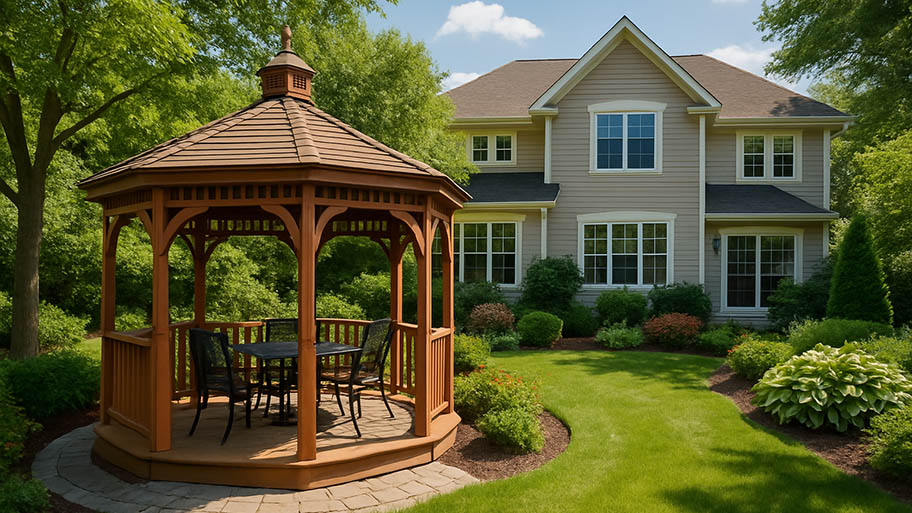
The average gazebo installation cost depends on the size and material. Keep reading to discover how much your gazebo may cost.
Permeable pavers cost $9,511 on average, with most homeowners spending between $5,867 and $13,209.


Permeable paver projects typically cost between $10 and $30 per square foot.
Most homeowners pay more for base prep than for the pavers themselves.
Driveway installations require deeper excavation and stronger materials than walkways.
DIY can cut labor costs in half, but mistakes in base prep are expensive to fix.
On average, permeable paver installation costs $9,511, though most homeowners spend between $5,867 and $13,209. Costs can vary quite a bit depending on factors like the size of the area, the paver material, and the site conditions. Upgrades like decorative borders or complex patterns will also increase your final price.
Project size is one of the biggest cost factors for permeable paver installations because the larger the area, the more materials and labor you’ll need. Most permeable paving projects cost between $10 and $30 per square foot, though prices depend on material type, soil conditions, and project complexity. Smaller installations, like walkways or patios, have lower total costs but may have higher per-square-foot pricing due to minimum labor fees and fixed equipment costs.
| Project Size in Square Feet | Average Total Cost |
|---|---|
| 100 | $1,000–$3,000 |
| 200 | $2,000–$6,000 |
| 400 | $4,000–$12,000 |
| 640 | $6,400–$19,200 |
| 1,000 | $10,000–$30,000 |
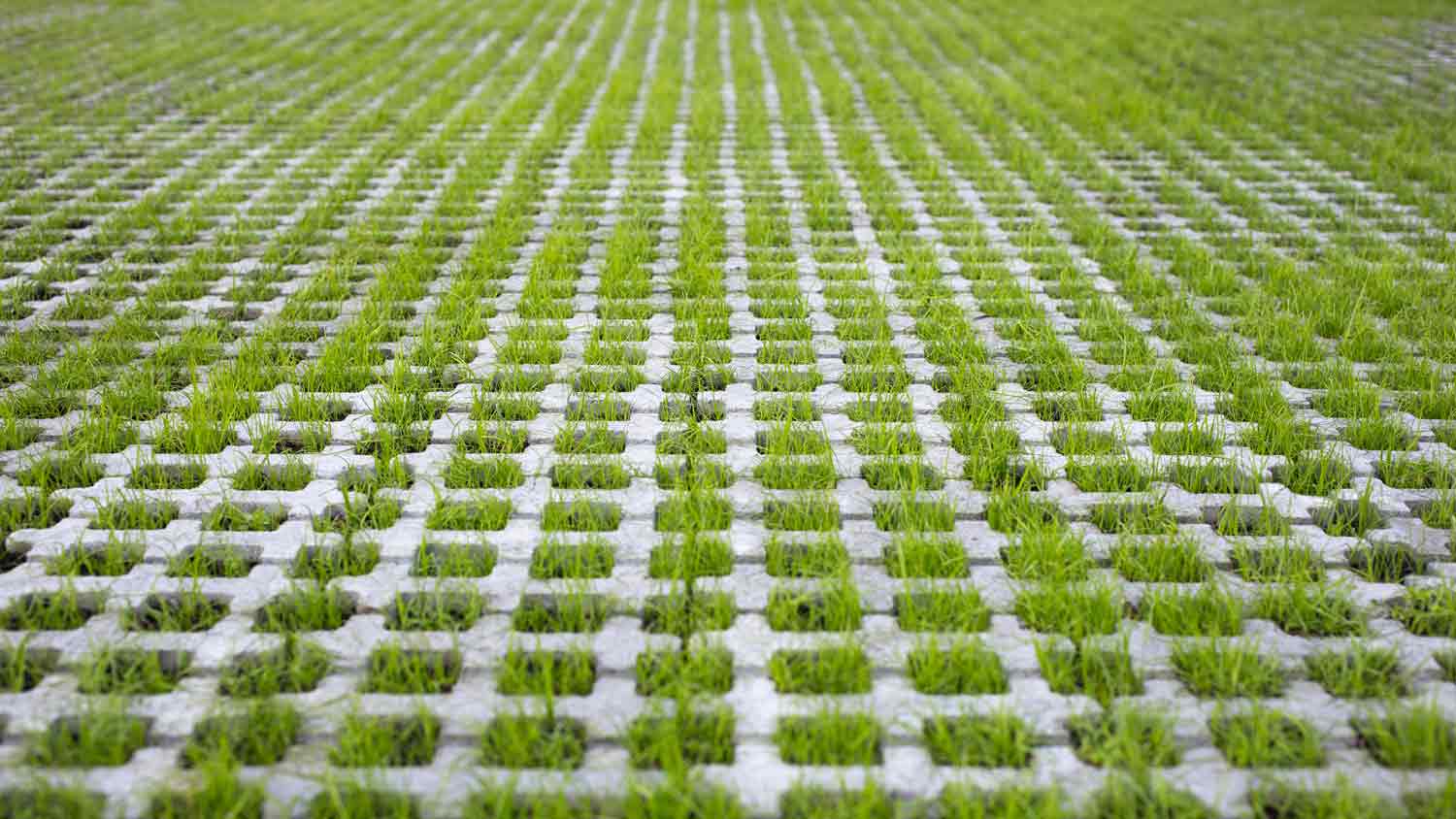
The type of permeable paver you choose plays a major role in both appearance and cost. Some are relatively simple to install and budget-friendly, while others require complex base layers, specialized labor, or high-end materials. Below is a breakdown of common permeable paver types, their average installed costs, and the pros and cons of each.
However, it’s important to note that not all of these are technically “pavers” in the modular, interlocking sense. Porous asphalt and pervious concrete are poured-in-place surfaces rather than individual paving units, but they’re often included in the same category because they serve a similar purpose by allowing water to pass through the surface to reduce runoff.
| Paver Type | Average Cost per Square Foot Installed | Pros |
|---|---|---|
| Concrete grid pavers | $6–$18 | Affordable; allows grass or gravel infill |
| Plastic grid pavers | $5–$10 | DIY-friendly; lowest material cost |
| Permeable interlocking pavers | $10–$40+ | Durable, decorative, wide design options |
| Porous asphalt | $7–$15 | Smooth surface; great for driveways |
| Previous concrete | $8–$16 | Uniform surface; good drainage |
| Natural stone with open joints | $15–$35+ | High-end look; customizable layout |
Permeable pavers require a much deeper and more structured base than traditional paving systems. Base layers typically cost $40 to $86 per cubic yard, and most residential projects need 6 to 18 inches of depth. A two-car driveway often requires 15 to 25 cubic yards of base material.
Most projects use layers of crushed angular stone, which support weight while letting water filter through. It’s the most common choice because it’s stable, compactable, and highly permeable. But in lower-traffic areas like patios or walkways, you might use clean gravel or crushed recycled concrete instead. Some systems, especially plastic grids, also use pea gravel or coarse sand, but these aren’t strong enough for driveways or other load-bearing surfaces.
While materials and project size will make up a large portion of your total, several other factors can affect the final price of your permeable paver installation.
Labor often accounts for 40% to 60% of your total project cost, especially for installations that involve excavation, grading, and multiple layers of stone. Most homeowners pay between $5 and $11 per square foot for labor, depending on the complexity of the job and your contractor’s experience.
For hourly work, expect to pay around $50 to $90 per hour for a specialized paver installer or general contractor. Handypeople or landscape crews may charge slightly less, but if the project involves a driveway, deep base layers, or custom edging, it’s best to hire a pro with experience installing permeable systems.
A typical permeable paver project takes 2 to 7 days, depending on the area size, slope, weather, and whether any demolition or extra drainage work is needed. Larger driveways with complex layouts or poor soil may stretch longer.
Here are some common labor costs for permeable paver installation:
Excavation crew: $120-$150 per hour
General contractor or paver installer: $50–$90 per hour
Landscape designer (optional for complex layouts): $1,900–$7.200 per project
Depending on where you live, installing permeable pavers may require a permit, especially if you're replacing your driveway or modifying the curb or stormwater runoff. Some cities treat permeable paving projects as standard hardscaping, while others have stricter regulations due to drainage codes or impervious surface limits.
In most cases, your contractor will handle the permit, but it’s still a good idea to confirm what's required in your municipality before work begins. If you're doing the project yourself, you’ll be responsible for applying for the permit yourself. Permit costs vary but typically range from $50 to $250.
If you're replacing an existing surface, you should factor demolition and site prep into your budget. Most contractors include these steps in their overall estimate, but it’s helpful to double-check, especially if your project involves large or reinforced slabs.
Removing an old driveway typically costs $1 to $3 per square foot, depending on the material. Asphalt tends to be cheaper to remove, while reinforced concrete or stone can be more expensive. Prep work may also include grading, removing vegetation, or addressing poor soil, which can add $1 to $5 per square foot, depending on the condition of the site. Projects on sloped or heavily compacted terrain may require even more excavation and leveling, which drives up labor time and equipment costs.
If you want to boost the function or look of your permeable pavers, you can opt for upgrades at an additional cost. Here are common permeable paver add-ons and their estimated costs:
Decorative borders or inlays: $10–$25 per square foot
Lighting integrated into pavers: $50–$200 per fixture
Snow-melt system: $10–$25 per square foot
Custom color or finish on pavers: $3–$8 per square foot
Decorative gravel or specialty infill: $1–$3 per square foot
Matching or extended hardscaping: $500–$3,000+
Permeable pavers are designed to manage water long-term, but they require regular maintenance to stay effective. The biggest maintenance concern is clogging, which happens when dirt, leaves, or other debris fill the gaps between pavers. If left unaddressed, these clogs can reduce permeability and lead to water pooling or runoff issues.
Most homeowners can prevent clogs themselves by occasionally cleaning the pavers with a leaf blower, broom, or wet/dry vacuum, but professional cleaning may be needed every few years, especially for driveways or other heavily used areas.
Here’s what to expect in terms of cost:
Basic DIY upkeep: Free to $100 per year for tools or gravel top-offs
Professional cleaning: $300–$600 every 2 to 5 years
Joint refill: $1–$3 per square foot
Professional weed removal: $50–$300
The condition of your site can have a major impact on the final cost of your permeable paver project. Flat, easily accessible areas with good soil drainage are the easiest, and therefore most affordable, to work with.
But if your yard has a steep slope, clay-heavy soil, or limited equipment access, expect to pay more for things like excavation, grading, and base stabilization. Sloped terrain often requires deeper base layers or retaining structures to prevent shifting, while poorly draining soil may require underdrain systems, which can add hundreds or even thousands to your total.
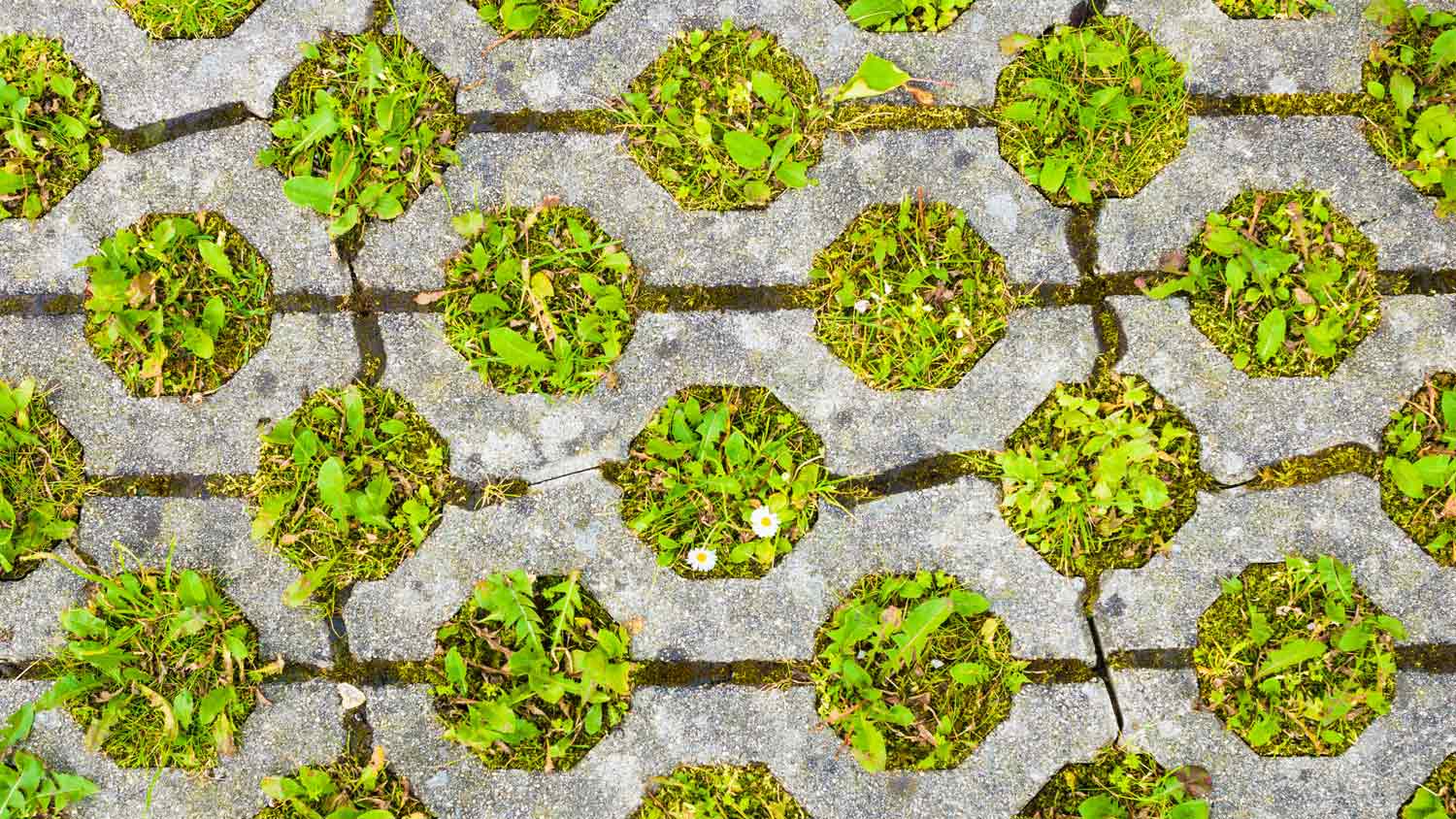
The more complex your layout, the more you’ll pay in labor and materials. A basic rectangular patio with uniform pavers is relatively quick and affordable to install. But curved edges, intricate inlays, and multi-color or multi-shape patterns take longer to cut, lay out, and level. That additional time drives up labor costs.
Custom features like borders, circular layouts, or blending permeable and non-permeable sections can also require more precise planning and more experienced installers. If your design includes multiple transitions or elevation changes, like steps, slopes, or raised edges, you’ll pay even more for skilled labor and possibly additional materials like concrete footings or retaining walls.
If you're on a budget, keeping the layout simple and sticking to standard shapes and sizes is one of the easiest ways to reduce your total cost.
Landscape curbing or edging keeps your permeable pavers locked in place. The simplest option is plastic or metal strips that snap into the stone base; these usually run $2 to $5 per linear foot. For a more permanent solution, you can go with concrete curbs or poured concrete borders, which cost $15 to $20 per linear foot and provide a sturdy frame for driveways and patios.
Installing permeable pavers often disrupts the surrounding landscape, especially if you're replacing an existing surface or expanding into grassy or planted areas. So after installation, you may need to repair or replace turf, mulch, or planting beds that were disturbed during the process.
If the new pavers don’t line up with the previous grade, some regrading or soil backfill may be needed to smooth out transitions. You might also need to reseed grass, install sod, or repair irrigation lines.
These costs are typically not included in your contractor’s estimate and can add a few hundred to a few thousand dollars, depending on the extent of the damage and whether you hire a landscaper or handle it yourself.
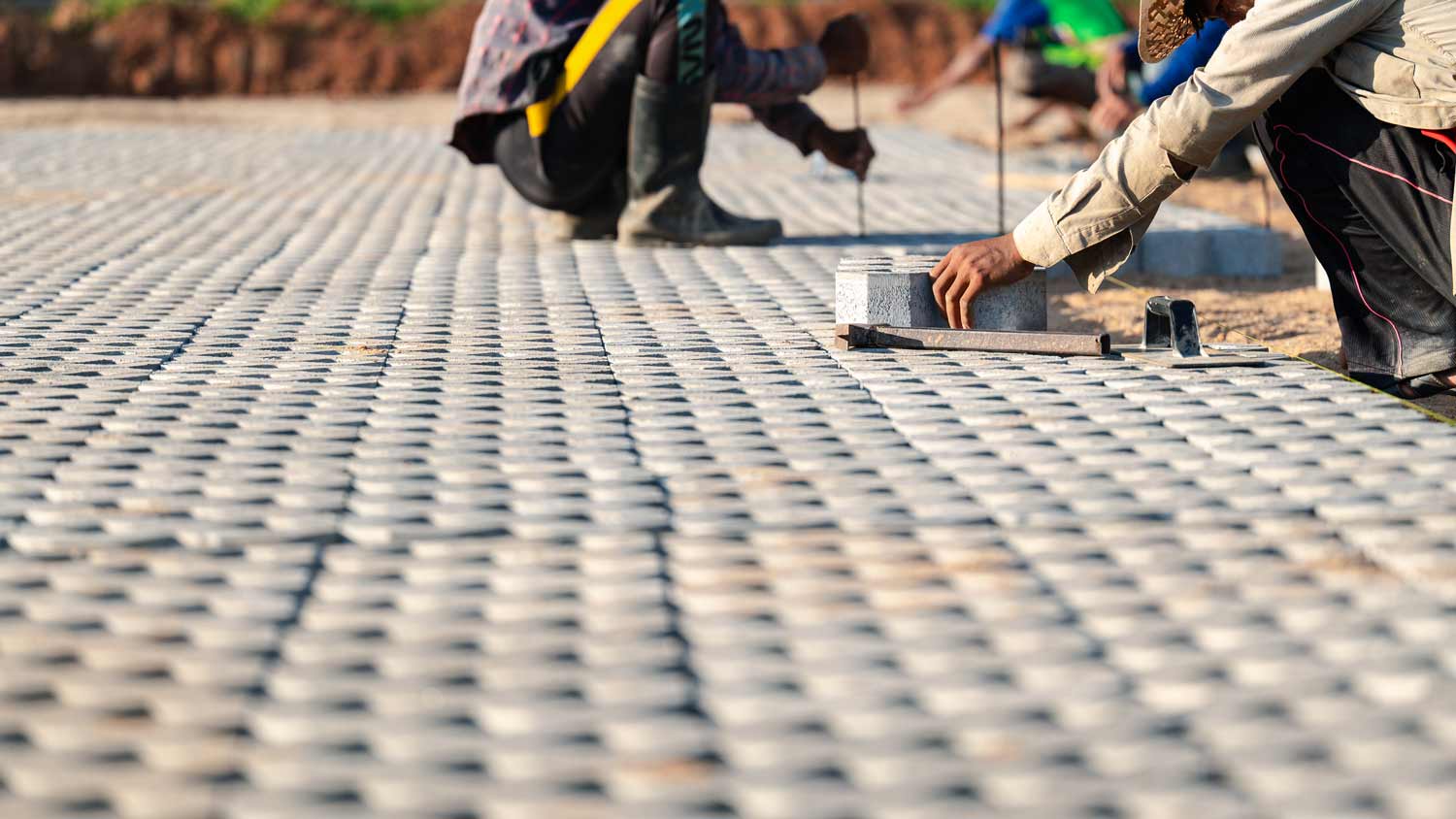
Installing permeable pavers yourself can save a significant amount of money, but it’s a demanding project that requires careful planning, physical labor, and the right tools. Most professionally installed paver systems cost $10 to $30 per square foot, depending on material and complexity. DIY installations typically cost $5 to $15 per square foot, depending on the system and whether you need to rent equipment.
You’ll need tools like a plate compactor, wheelbarrow, level, screed, rake, shovel, and potentially a skid steer or mini excavator for deeper base prep. Equipment rentals can add $300 to $800. Smaller patio or walkway projects might take a few days to complete. A full driveway can take a week or more, especially if you’re working alone.
But if you do decide to tackle this project yourself, make sure you know exactly how to install the base layer because if it’s too shallow, uneven, or poorly compacted, the surface may shift, settle, or fail to drain. DIY is most realistic for small, flat areas like patios and walkways, especially when using plastic or concrete grid systems. More complex projects with curves, slopes, or interlocking pavers are usually best left to professional paver installers.
Permeable paver systems are designed to last for decades, but they’re not immune to wear, settling, or drainage failure over time. When issues arise, the decision to repair or fully replace depends on how widespread the damage is, how old the system is, and how well it was installed in the first place.
Small issues like loose pavers, minor joint erosion, or minor clogging can usually be fixed for a few hundred dollars or less. But if you’re dealing with major settling, widespread flooding, or a failed base, replacement may be the more cost-effective option in the long run, especially if the repair cost exceeds 50% of a full replacement.
| Factor | Repair | Replace |
|---|---|---|
| Cost of Repairs vs. New Pavers | Repairs cost under 50% of total replacement | Repairs exceed 50% of full replacement cost |
| Age of Pavers | Less than 10-15 years old | Over 20-25 years old |
| Drainage Problems | Minor pooling or isolated clogging | Widespread drainage failure or flooding |
| Surface Conditions | Uneven spots or isolated settling | Major settling or widespread displacement |
| Base Condition | Base is stable and intact | Base is unstable or improperly built |
Yes, permeable pavers can increase your home’s value by boosting both its function and curb appeal. They manage water drainage, protect your foundation, and reduce erosion, which helps preserve your property over time and appeals to prospective buyers. They also create a polished, high-end look in driveways, walkways, and patios. And in some areas, they qualify for rebates or reduce stormwater fees, which adds to their long-term appeal.
Permeable paver projects can get expensive fast, but there are a few ways to bring the cost down. Applying the following tips can potentially save you money on this home improvement project.
Skip decorative patterns and stick with a simple layout to reduce labor time
Use a plastic or concrete grid system filled with gravel for patios or walkways instead of premium pavers
Handle demolition and site prep yourself if you’re comfortable using basic tools and renting equipment
Reuse existing crushed stone from an old base layer if it’s still clean and meets drainage standards
Choose standard paver sizes and colors to avoid custom markups
Install the pavers yourself if you’re comfortable with all of the required steps.
Home is the most important place on earth, which is why Angi has helped more than 150 million homeowners transform their houses into homes they adore. To help homeowners with their next project, Angi provides readers with the most accurate cost data and upholds strict editorial standards. We extensively research project costs to develop the pricing data you see, so you can make the best decisions for you and your home. We rely on reputable sources, including the U.S. Bureau of Labor Statistics, academic journals, market studies, and interviews with industry experts—all to ensure our prices reflect real-world projects.
Want to help us improve our cost data? Send us a recent project quote to [email protected]. Quotes and personal information will not be shared publicly.
From average costs to expert advice, get all the answers you need to get your job done.

The average gazebo installation cost depends on the size and material. Keep reading to discover how much your gazebo may cost.
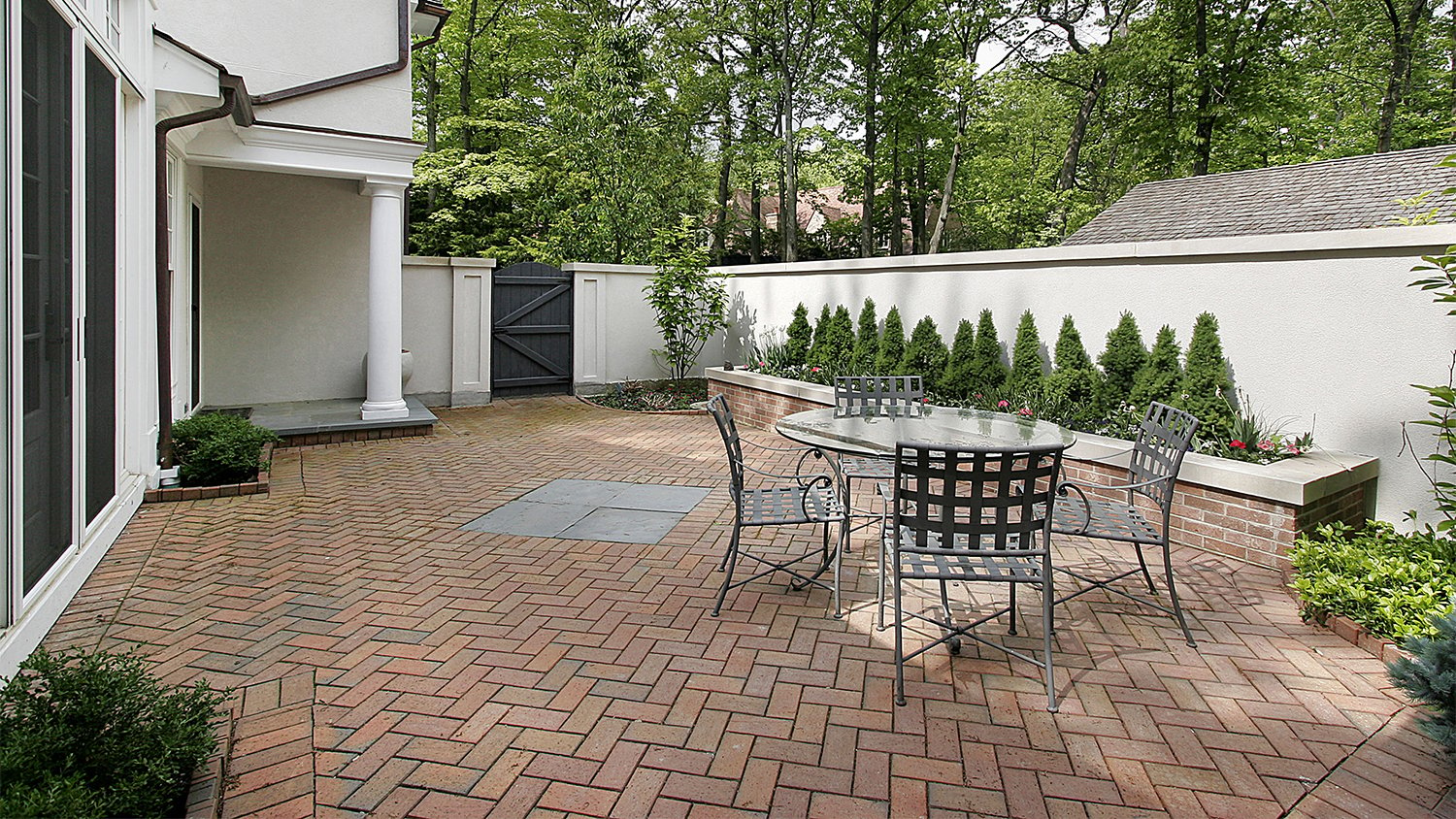
Looking to spruce up your outdoor entertaining area? Learn how much it costs to seal pavers and what factors to consider when estimating your total.
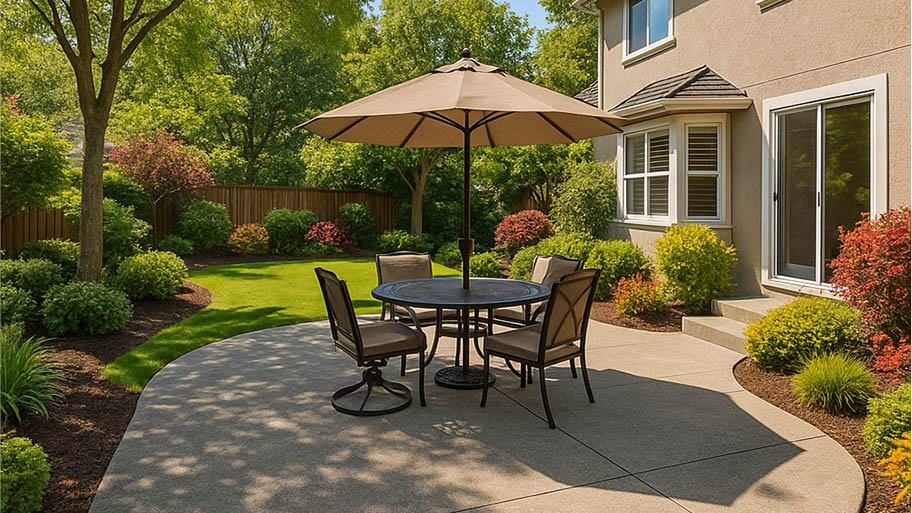
A concrete patio adds valuable outdoor living space to your home. Learn how much a concrete patio costs and which factors affect the project price.
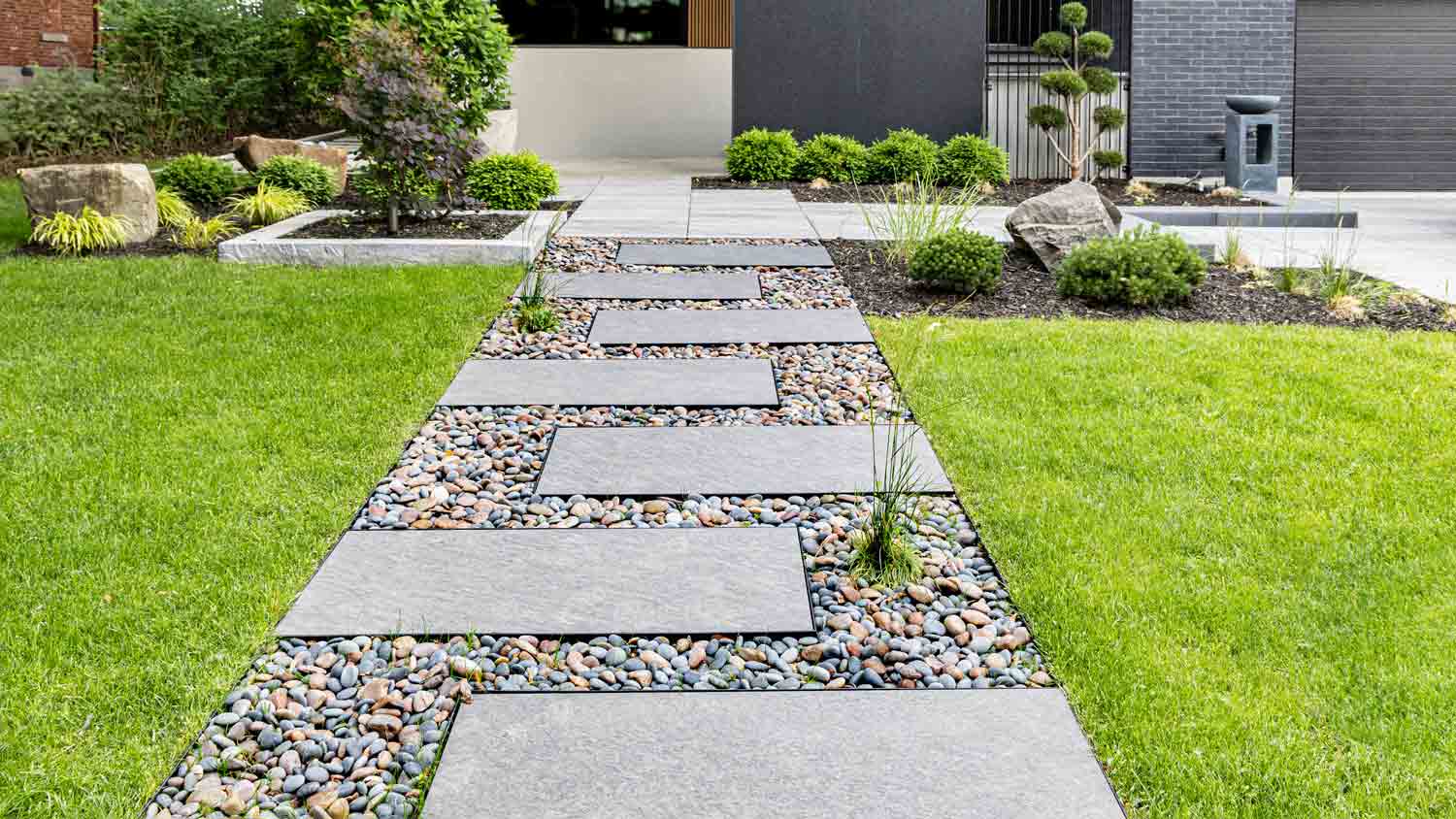
How much stone you need will be determined by the project shape, your budget, and desired aesthetic. Use this stone calculator to determine how much stone you need.

Using brick or concrete patio pavers can transform your backyard into your own luxury getaway. Browse our paver patio ideas to get your creative juices flowing.
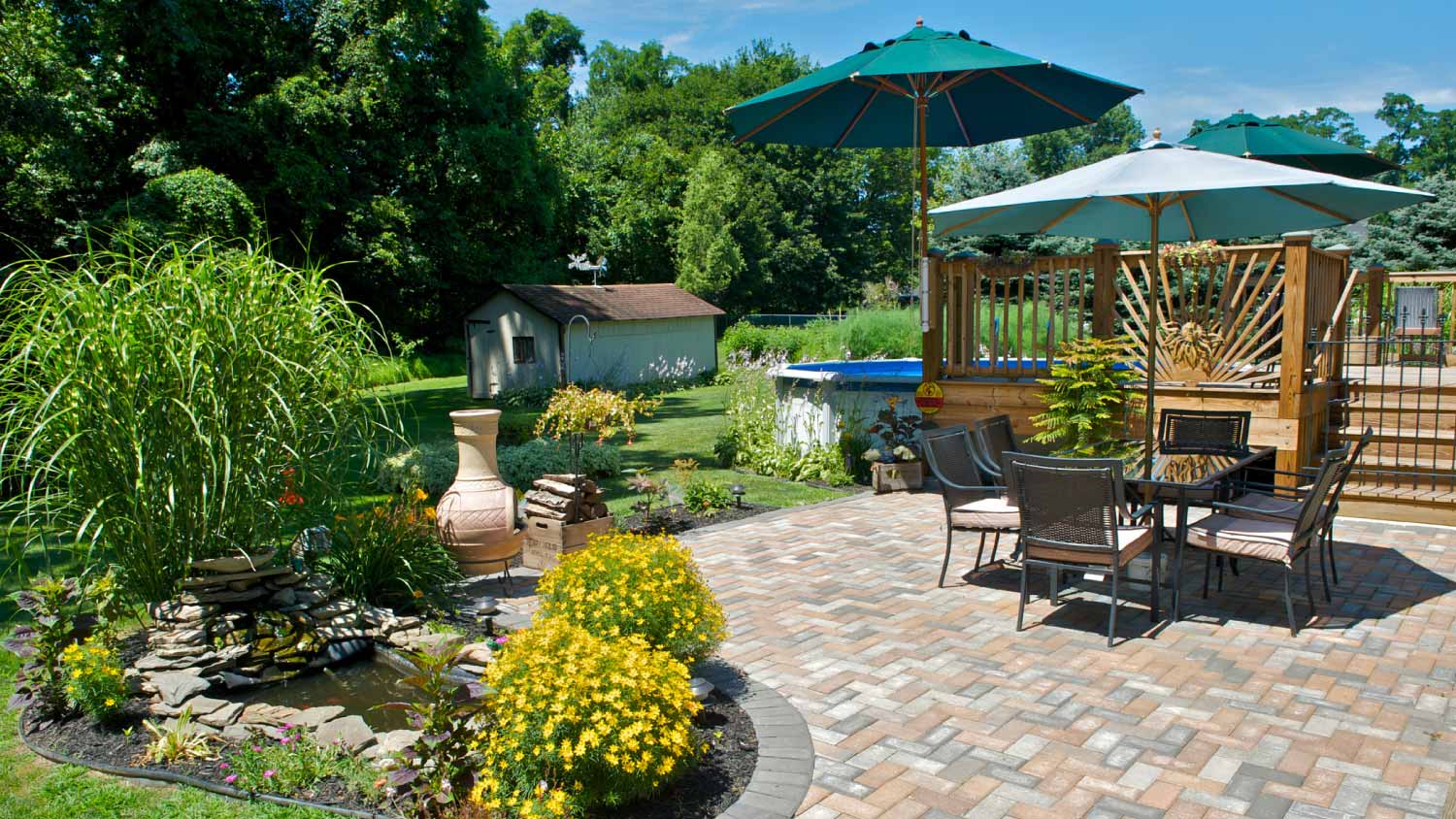
Ready to create your perfect outdoor space? Our guide walks you through building a brick patio, from planning to laying the last brick.